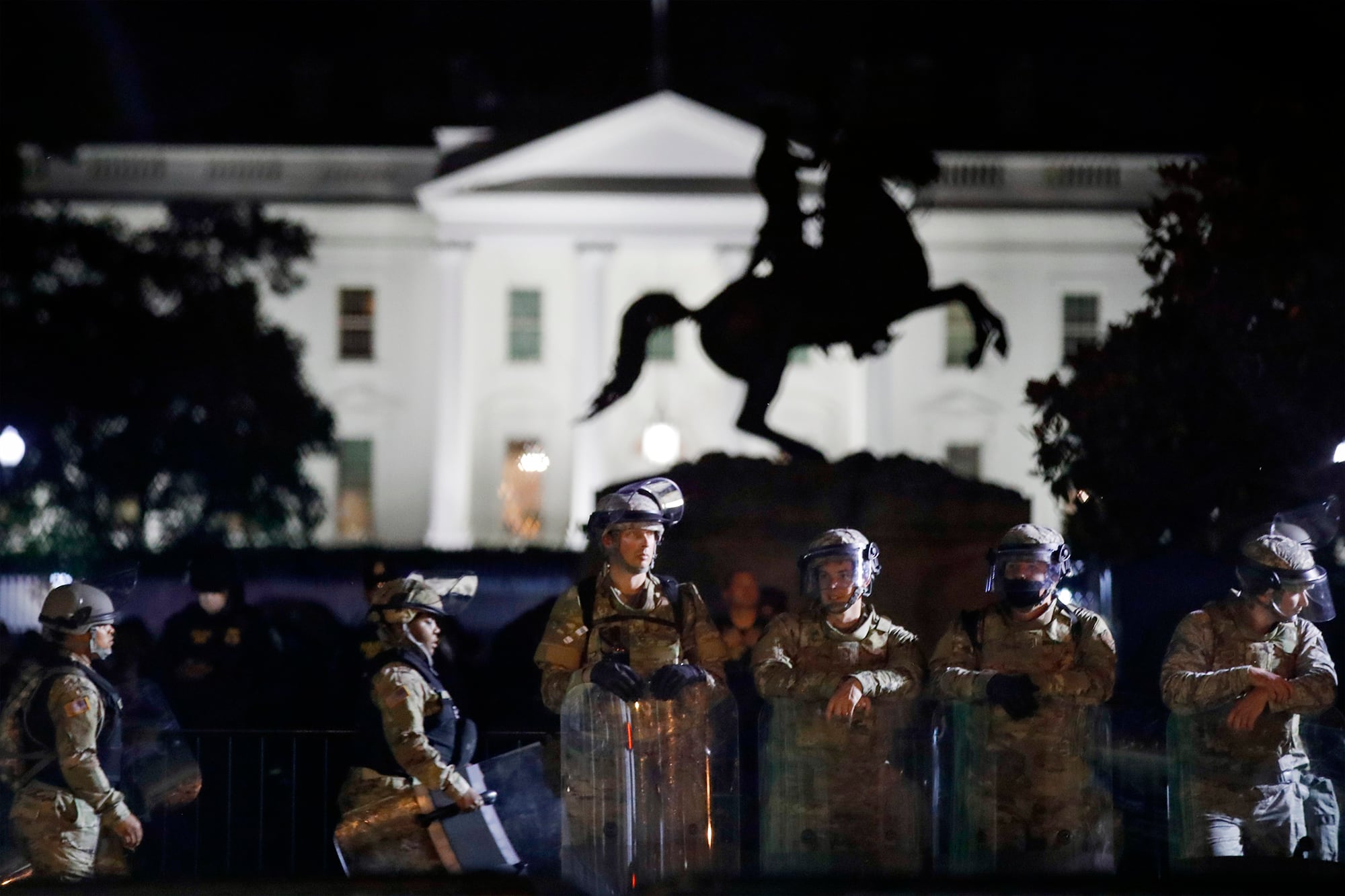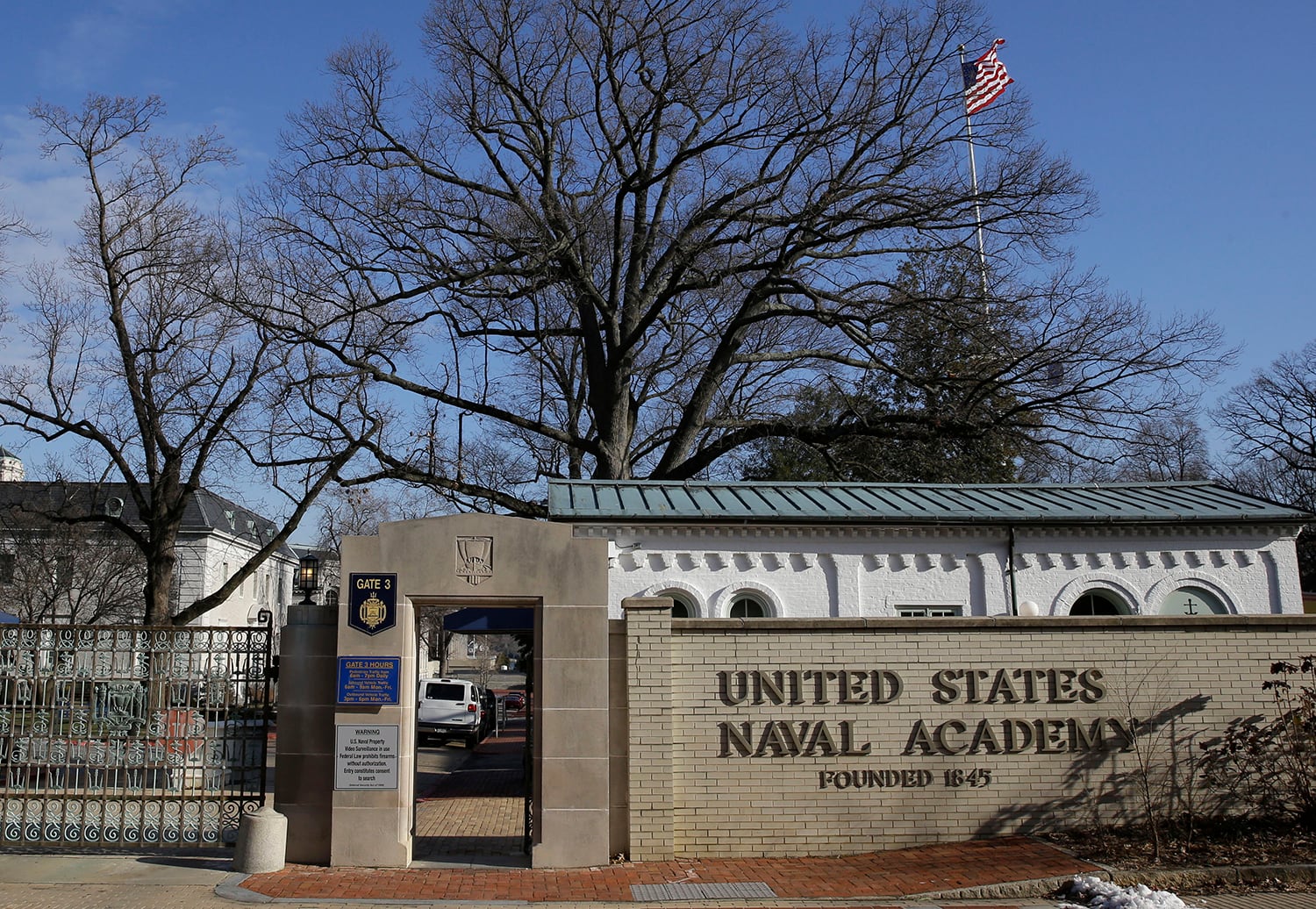In the midst of a challenging year for civil-military relations in America, the U.S. Military Academy in West Point, New York, has allowed an unprecedented and timely research survey of more than 1,400 cadets' attitudes on civil-military relations.
Several incidents so far in 2020 highlight what survey officials say are coincidental examples of the need to gauge the cadets. In June, Army Gen. Mark Milley participated in what became a controversial photo opportunity at Lafayette Square in Washington, D.C., in which protesters were violently pushed back to make way for President Donald Trump and his entourage.
Milley, chairman of the Joint Chiefs of Staff, publicly apologized. He later had to reassure Congress that there’s “no role for the U.S. armed forces” in resolving any election dispute as concern grew that the military would have to intervene. And on Friday, the Washington Post wrote about a new non-partisan group of lawyers — The Orders Project — building a free legal advice network for troops who may receive unlawful orders related to the election.
RELATED

Amid this surging public awareness of civil-military norms, a group of academics has drafted a working paper taking the pulse of how cadets perceive their role in civil society.
Military Times obtained the working paper, which is undergoing revisions following its presentation at the American Political Science Association’s annual conference in September. Papers presented at the conference are pre-published online while their authors revise them for submission to journals. Working papers have not yet completed the rigorous academic peer review process, and the APSA recommends using caution and seeking author permission when citing them.
Two of the survey’s three authors — Risa Brooks of Marquette University and Heidi Urben of Georgetown University, agreed to speak about their findings. The paper’s other author, Army Maj. Michael Robinson of West Point, was unavailable due to his teaching duties. Urben and Brooks are also affiliated with West Point through its Modern War Institute, and Urben previously taught there.
Brooks, the Marquette-affiliated author, explained in an interview that they designed the survey to learn “how professional norms are socialized early in an Army officer’s career. Military professionalism is a key component of officership, and we wanted to get a better understanding of how cadets conceive of professionalism at this early point in their careers.” The authors conducted the survey from December 2019 to January 2020.
The survey’s authors say their views do not reflect the position of the United States Military Academy, the Department of the Army, or the Department of Defense. But some of the results offer a striking view of the challenges West Point faces in working to mold an apolitical officer corps.
Among other things, the survey found that 28 percent of cadets indicated they wouldn’t “resist civilian orders that threaten the country’s democratic traditions.”
Attorney Eugene Fidell, former head of the National Institute of Military Justice and Orders Project co-founder, expressed concern to Military Times about the finding but warned against jumping to conclusions, calling the survey’s query “vague."
“How that translates into real life or what they would do when faced with a doubtful order is another matter,” he said.
Jim Golby, a civil-military relations expert, told Military Times that he is not surprised by the survey’s findings about how cadets would react.
“Given America’s polarized politics, it is not particularly surprising to me that we would see mixed acceptance of [civil-military] norms among a minority of young cadets,” Golby said. "The most important thing for our country is that our military officers embrace these ideas completely.” Golby — who did not author the study — is a former West Point instructor and a senior fellow at the University of Texas at Austin’s Clements Center for National Security.

Of 1,470 second- and third-year cadets, only 11 percent stated that they believe civilian policy makers should be blamed for whether we win or lose our wars. Their acceptance of military accountability contrasts with the attitudes of the Vietnam-era military, which largely adopted a narrative claiming civilian policymakers had “stabbed them in the back” and doomed the war effort.
The surveyed cadets also largely believed that servicemembers should not discuss politics on social media: Only 13 percent of respondents said it was okay to do so. Social media conduct has been an area of emphasis in recent years for the service academies, and Naval Academy midshipman Chase Standage is currently suing the academy over his potential expulsion for racist social media posts. Standage made a series of tweets in June criticizing racial justice protests, including one claiming police violence victim, Breonna Taylor, received “justice” when police killed her.
RELATED

Urben, the Georgetown professor, said the survey’s findings show a successful education at West Point.
“Cadets demonstrated good adherence to certain civil-military relations norms, such as agreeing with the notion that the military should take responsibility for the outcomes of war and that members of the military should avoid talking about politics on social media,” Urben said.
Maintaining an apolitical online presence, though, doesn’t mean that the cadets are non-partisan in their personal views. Of those surveyed, 57 percent identified themselves as Republicans, and 24 percent reported they were Democrats.
This survey also is notable because it offers a large, representative sample — nearly 1,500 cadets — of a military population. Many polls and surveys of the military have methodological and sample issues that negatively impact the accuracy of their results. In a phone interview, Jim Golby explained, “[The sample] is actually extremely rare and becoming rarer on issues relating to politics…only a handful of good surveys have [ever] done it.” The service academies are even more difficult to survey.
USMA officials said the research “is important as it has the potential to shape our sense of what we ought to be doing to educate and to socialize cadets to our Army’s professional norms and values.”
Urben, the Georgetown-affiliated author of the study, emphasized the importance of conducting the survey at West Point. “At least in the Army, West Point provides the most thorough teaching and reinforcement of these critical civil-military relations norms compared to other junctures later in an officer’s career.”
“I think West Point is taking the right approach,” said Golby.
Orders Project co-founder Fidell agreed. “West Point’s doing something right in that cadets are alert to the importance of our constitutional norms.”
The service academies are also difficult to survey because of their tightly-controlled nature, explained Golby. He commended West Point for allowing the research.
“It would be really easy for West Point to just shut their doors and say ‘No, we don’t want to do this,’” said Golby. “It is encouraging to see West Point allowing research to identify and correct potential issues among cadets early in their careers."
Regarding those cadets who may value orders more than protecting democracy, Golby said, “I expect they came in with those attitudes most likely.” he explained, “We have seen — over the past few decades of research — a breakdown in norms not just in the surveys we’ve done of the military, but especially in surveys we’ve done of the broader public.”
Golby highlighted the difficulty of teaching civil-military values to cadets. “This process of teaching norms is extremely difficult…[and] it’s particularly difficult right now in the midst of the massive partisan polarization we’re seeing that dominates almost every conversation we have about almost any topic in America today.”
Davis Winkie covers the Army for Military Times. He studied history at Vanderbilt and UNC-Chapel Hill, and served five years in the Army Guard. His investigations earned the Society of Professional Journalists' 2023 Sunshine Award and consecutive Military Reporters and Editors honors, among others. Davis was also a 2022 Livingston Awards finalist.





